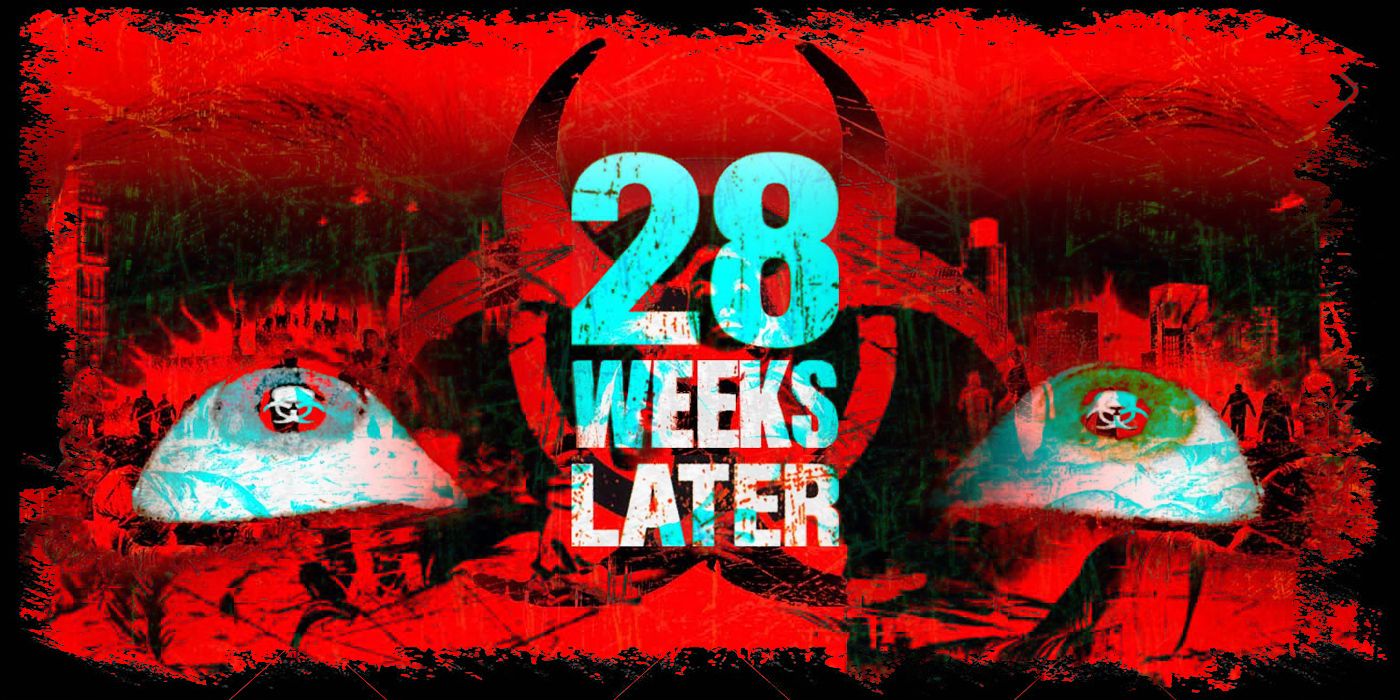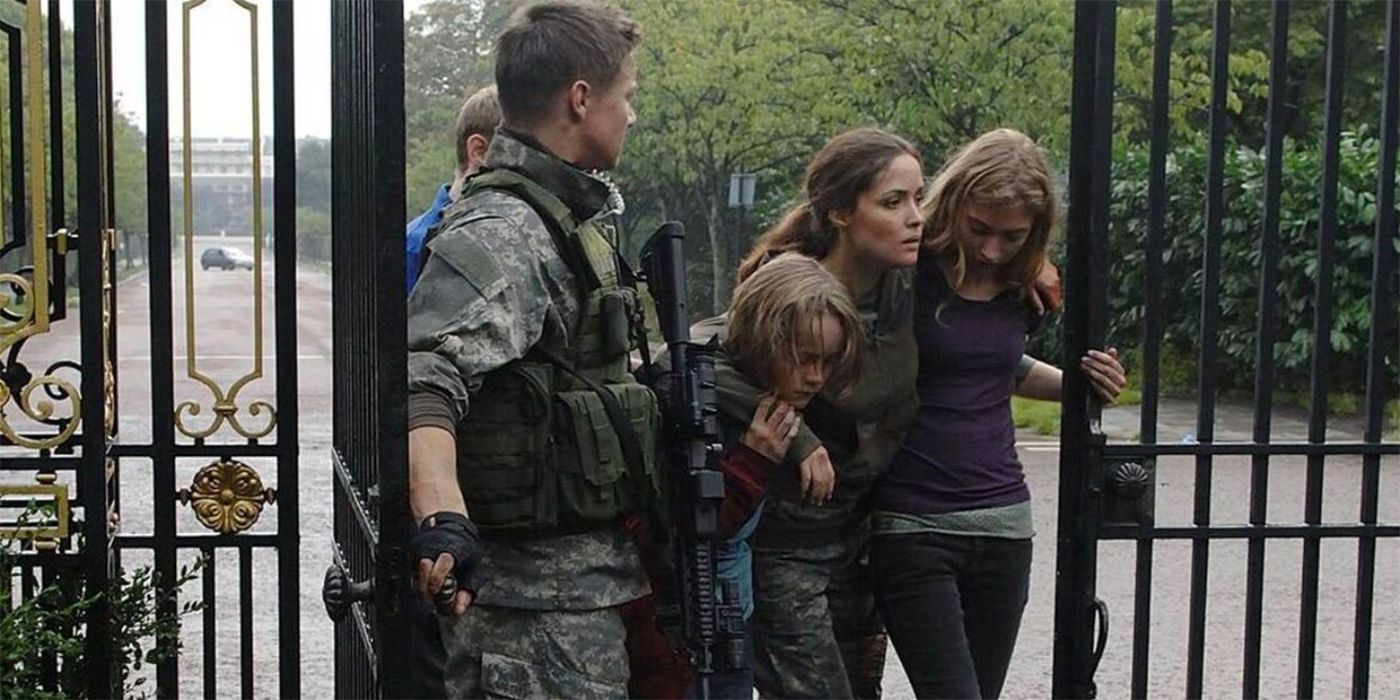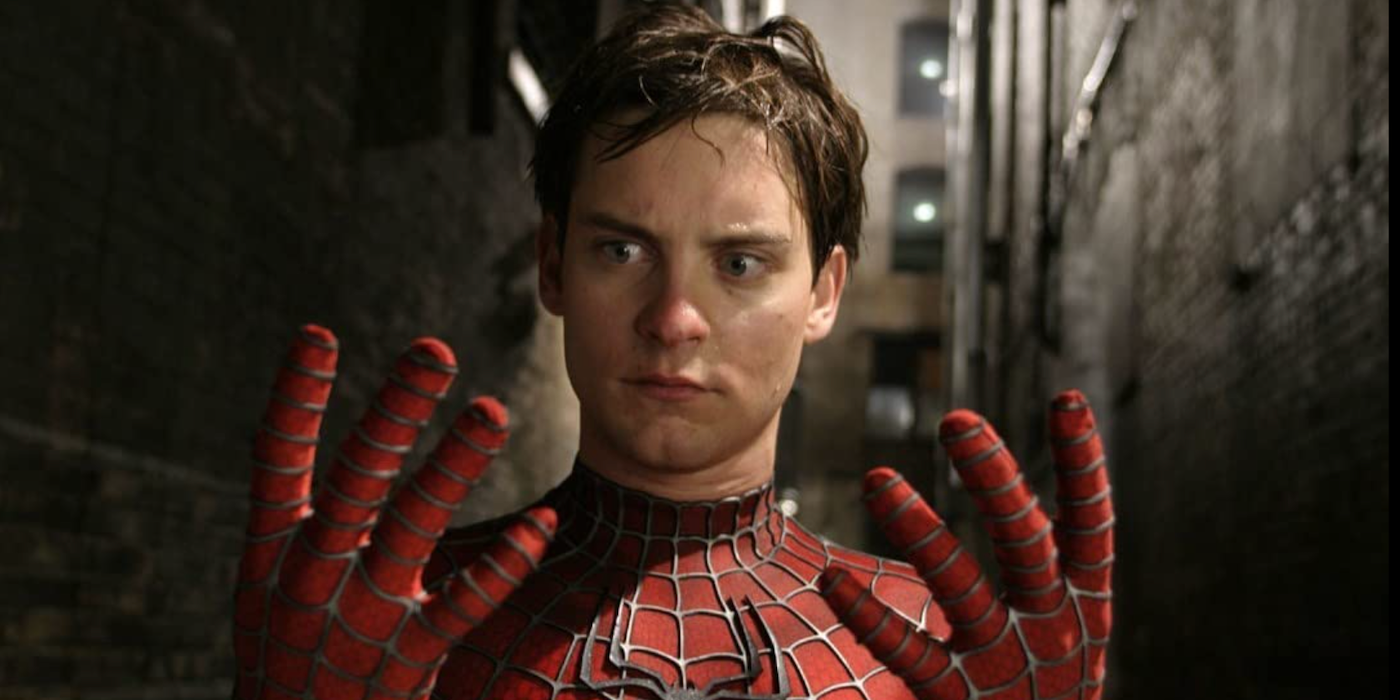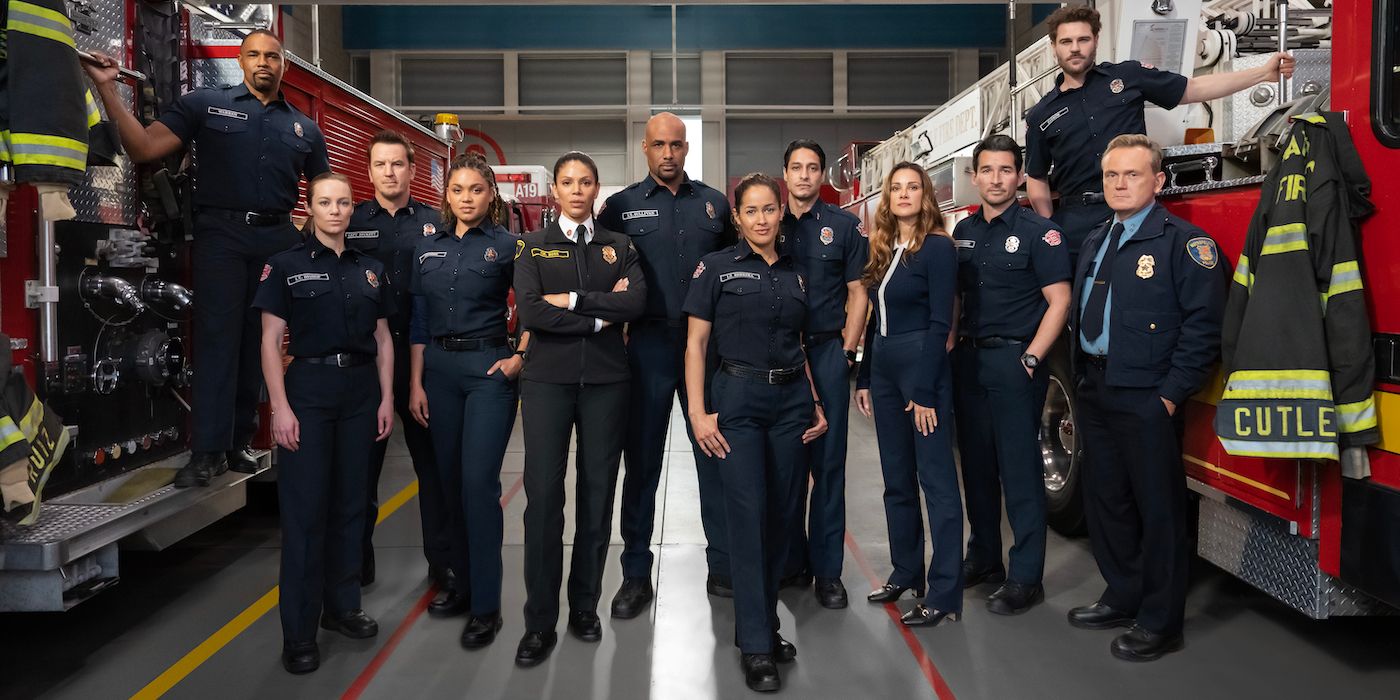The Big Picture
- The opening sequence of 28 Weeks Later sets the intense tone of the film and introduces a moral dilemma that shapes the protagonist’s actions throughout.
- The film’s ensemble cast provides realistic portrayals of military and government responses to a zombie invasion, creating a chilling atmosphere.
- Unlike many horror sequels, 28 Weeks Later offers a unique and unpolished take on the genre, focusing on family drama amidst the undead invasion and setting the stage for a potential sequel.
28 Days Later, director Danny Boyle’s terrifying vision of London in the aftermath of a zombie apocalypse, immediately sparked renewed interest in the genre when it debuted in 2002. Boyle’s fly-on-the-wall perspective, released during the dawn of digital innovation, became an instant classic because of its humanist drama and biting political allusions. All zombie movies have to live in the long shadow of George A. Romero’s Night of the Living Dead, but Boyle’s innovative take on a 21st-Century post-apocalypse emerged as a worthy contender. Understandably, expectations were high for the follow-up, 28 Weeks Later. Boyle was out, choosing instead to work on the sci-fi epic Sunshine, another collaboration with screenwriter Alex Garland. Filmmaker Juan Carlos Fresnadillo stepped in as director, but his script—co-written with Rowan Joffé, Enrique López-Lavigne, and Jesus Olmo—would follow an entirely different cast of characters. However, 28 Weeks Later is a perfect conclusion to a terrifying double feature, retaining the same frantic pacing and distinguished style of Boyle’s work while expanding the searing commentary of government and military responses to a global health crisis. Like 28 Days Later, it feels all the more prophetic in the post-pandemic era, boasting its own set of memorable characters and terrifying set-pieces.
28 Weeks Later
Six months after the original epidemic, the rage virus has all but annihilated the population of the British Isles. Nevertheless, the U.S. Army declares the danger past, and American soldiers arrive to restore order and begin reconstruction. Refugees return to British soil, but one of them carries a deadly secret: The virus is not gone and is even more dangerous than before.
- Release Date
- April 26, 2007
- Runtime
- 100 minutes
‘28 Weeks Later’ Features a Shocking Opening Sequence
The opening sequence alone alerts viewers that they’re in for an intense thrill ride. Zombie cinema is at its best when focusing on the moral dilemmas characters face when risking their own survival, and Robert Carlyle’s protagonist, Don, is brilliantly introduced in a flashback where he’s forced to abandon his wife when she tries to save a young boy from a group of infected. It’s an unthinkable scenario that forces Don to face two split-second decisions; is he willing to let a stranger die in order to save his wife, and is he willing to let his wife die to save himself? Don gets no time to consider the decisions in front of him, and he’s forced to face the ramifications of his inaction over the course of the film. The best zombie films create tension out of these types of moral dilemmas.
Carlyle exhausts himself emotionally early on, but perhaps even more crushing than the visceral sight of his escape is the moment Don breaks the news to his children of their mother’s death, lying about his role in her demise. 28 Days Later created a family unit through the union of Jim (Cillian Murphy), Selena (Naomie Harris), and young Hannah (Megan Burns), but 28 Weeks Later rips one apart through the introduction of Don’s teenage daughter, Tammy (Imogen Poots), and younger son, Andy (Mackintosh Muggleton). Don’s guilt haunts his interactions. Carlyle does an excellent job of showing how Don’s priorities shift. The character is forced to wonder: Is the lie is for his children’s benefit or is he just comforting himself? While the performances in Boyle’s film helped to generate sympathy for the characters, the cast of 28 Weeks Later had to capture the same terror that the audience felt.
Don’s growth as a father, similar but distinct from Murphy’s patriarchal role, is made all the more crushing when his children are forced to make a similar decision in the film’s climax. Children in zombie films all too often feel like a burden only involved to evoke sympathy, but the characters in 28 Weeks Later feel much more active. They’re the ones forced to deal with their father’s mistakes when Don inadvertently spreads the virus while in quarantine. Poots, in particular, is fantastic; the future Green Room star showed her early horror expertise as a fiercely independent teenager forced to take on the burdens of a parental role as she protects her younger sibling.
‘28 Weeks Later’ Uses Creative Worldbuilding
28 Weeks Later‘ impressive ensemble cast helps flesh out how the military and government would realistically respond to a zombie invasion. Jeremy Renner is phenomenal in a pre-The Hurt Locker role as Doyle, a Delta Force sniper who suffers a crisis of conscience when he chooses to protect Tammy and Andy against orders. Idris Elba fulfills the role necessary to every zombie movie, the ruthless military leader willing to order civilian bombings to prevent further infections, but Elba is at least able to bring out the logical edge to a character that could’ve easily been played just for cliche. The procedural operation of military forces and the disregard for human casualties is just as chilling as the fast-moving zombies themselves.
Although the film expands its viewpoint to explore the global nature of the pandemic, 28 Weeks Later still keeps the action relatively focused, and Fresnadillo builds no shortage of memorable set-pieces. The escape through the Greenwich Foot Tunnel, in particular, is as pulse-pounding as anything in its predecessor, a marathon reminiscent of another iconic sci-fi horror sequel: Aliens. Similar to James Cameron‘s 1986 action sequel, 28 Weeks Later ramps up the violence without ever sacrificing emotional intimacy. The escape sequence combines crushing claustrophobia with a relentless pace, and when the violence comes it’s both shocking and indiscriminate. While the action works best exploring the chaos of mass panic, it also gives a clear motivation and purpose to Rose Byrne’s medical officer, Scarlet, who discovers the children may possess a cure for the infection.
‘28 Weeks Later’ Doesn’t Repeat the First Film
Without risking too many similarities to the first film, 28 Weeks Later concludes on a comparably bittersweet note. While the children survive thanks to Doyle’s self-sacrifice (one their father didn’t make himself), the virus is still spreading and there are only vague prospects of a cure. Zombies have overtaken the mainland. But at that moment, the victory is simply survival. Unpolished and brilliantly solemn, the future is at least lightened by a touching bond between siblings. While zombies continue to be a dominant subject in popular culture, 28 Weeks Later‘s depiction of the undead stands out because of how unpolished it is. It’s essentially a family drama that happens to feature an undead invasion.
28 Weeks Later stands out in comparison to other horror sequels because it paves a new path forward instead of repeating the first film’s success. While the ending is a perfectly satisfying conclusion to the story’s familial themes, it still leaves the door open for 28 Months Later. Rumors of the proposed sequel have faded in and out over the past decade, and most recently Cillian Murphy suggested that a third film may still be a possibility. Both Boyle and Garland continue to innovate in other genres and expand their portfolios, and if the ending of 28 Weeks Later teaches us anything, it’s that you can never quite give up hope. As is, we’re left with an almost perfectly crafted duo of undead films. When 28 Days Later is rightfully cited as one of the genre’s best, its sequel warrants equal acclaim.
28 Weeks Later is streaming on Hulu in the U.S.
Watch on Hulu






